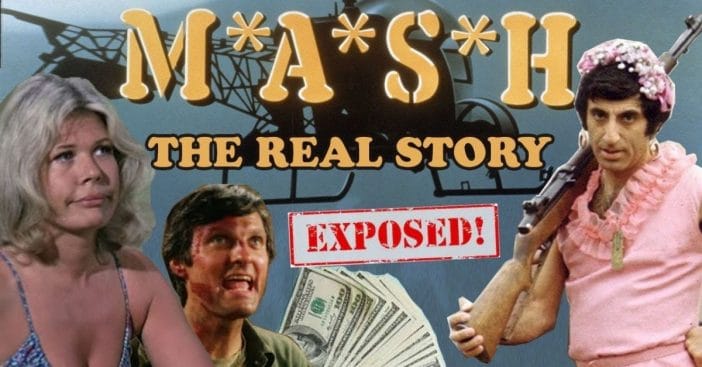
Through early morning fog, I see visions of the things to be. And those things today, are updates on everyone’s favorite Captains and Majors and Corporals. M*A*S*H became a household favorite from film to show and gained fans around the world. Let’s take a look at the song that introduced each episode.
The helicopters taxiing in, the horn section bellows, the medics running into a place. It’s pretty eerie for the opening of a show that would be categorized as a situational comedy— or dramedy. So what gives?
About M*A*S*H
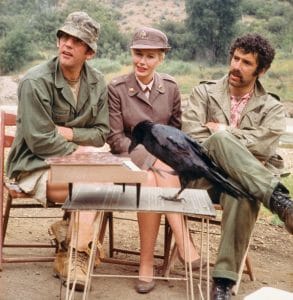
M*A*S*H was one of the greatest pieces of television to ever hit. Premiering in September of 1972, the critically acclaimed show smashed viewing records and was nominated for over 100 Emmys during its 11-year run. Its final episode went on to draw the largest audience of any television show to date with a whopping 125 million viewers. Our guess is that some of you helped pad those numbers. Let’s not forget, the series was based on the 1970s motion picture of M*A*S*H directed by Robert Altman.
RELATED: How Well Do You Know M*A*S*H?
The show itself had humble beginnings. The series struggled in its first season and was even at the risk of being canceled. However, in season two, CBS placed M*A*S*H in a better time slot, airing after the popular classic All in the Family. After this, the show took off. None of this could’ve been done without the creators masterfully crafting a unique brand of humor, blending hilarious slapstick with knee-slapping wit, all the while tackling some of the grimmest realities of the Korean war.
Characters In Both Film and TV Series
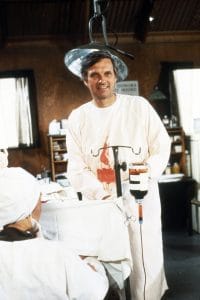
Who could forget Hawkeye Pierce played by Donald Sutherland in the film but probably better known as Alan Alda from the tv version. The wisecracking, drinking, womanizing of a surgeon was a hoot! “I’ll carry your books, I’ll carry a torch, I’ll carry a tune, I’ll carry on, carry over, carry forward, Cary Grant, cash-and-carry, carry me back to Old Virginie, I’ll even ‘hari-kari’ if you show me how, but I will not carry a gun.” This famous line said by Alda stayed in fans’ memories for years.
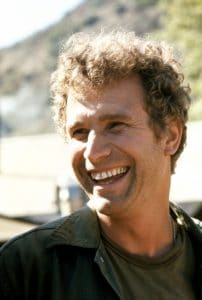
Trapper John was played by Elliott Gould in the film, and by Wayne Rogers in the TV series. He was the class clown, the practical joker of a captain, and had a loving wife and daughters. The lovely Major Margaret “Hot Lips” Houlihan. She was dynamically played by Sally Kellerman in the film and Loretta Swit in the show. Major Frank Burns was portrayed by legendary actor Robert Duvall in the film and Larry Linville on the show. Major Burns would receive a promotion to Lieutenant Colonel before departing the show.
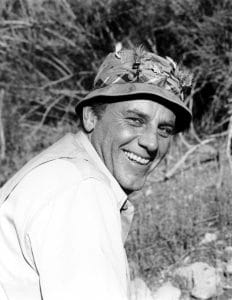
Lieutenant Colonel Henry Blake was played by Roger Bowen in the film and McLean Stevenson in the TV Series. Father Mulcahy was played by Rene Auberjonois in the film, and in the tv series was portrayed by William Christopher. The character’s last name stayed the same, however for the film, his name switched from John to Frances. The laughable Corporal Radar O’Reilly was played by Gary Burghoff in both productions.
Major Characters in the TV Version Only
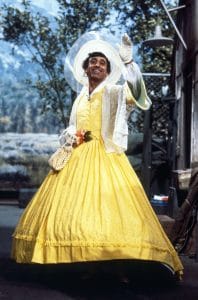
The gender-bending Corporal Maxwell Klinger fantastically portrayed by Jamie Farr. Colonel Sherman T. Potter played by Harry Morgan. Captain B.J. Hunnicutt played Mike Farrell. Major Charles Winchester played by David Ogden Stiers. And finally, a huge part of M*A*S*H, the film but not the show, Captain Duke Forrest, played by DoYouRemember’s longtime friend, Mr. Tom Skerritt. Now, initially, the show focused on the two lead roles from the film. the army surgeon’s captain, Hawkeye, played by Alan Alda, and Capt. Trapper played by Wayne Rogers.
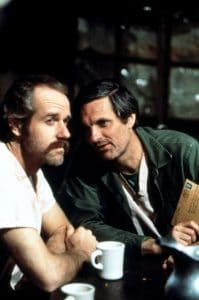
This dynamic however would change significantly throughout the 11 seasons, but despite significant cast changes during the course of its run—including the departure of Rogers, replaced as Hawkeye’s partner in crime by Capt. B.J. Honeycutt, played by Mike Farrell—the series maintained its success through consistently strong performances and great writing (most notably by producer Larry Gelbart). The complex characters were able to learn and grow over time, evolving in a style seldom seen in sitcoms. This was some of the brilliance of the show. Though it was set in the Korean war, M*A*S*H aired in the wake of the Vietnam War, and the antiwar message was never far from viewers’ minds.
The Difference Between TV And Film
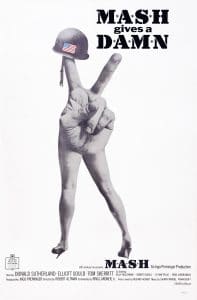
So back to that theme. The ominous yet eerily beautiful M*A*S*H theme song seems to be as unusual as a theme song gets. To start, there were essentially two versions of the title song, one with lyrics and one without. This is not entirely true as In the later seasons of the show there was a very slight difference in the gentle opening notes as well. The acoustic guitar opening the track is slightly, but noticeably different. The earlier version features single-string plucking, while the later version has more of a harmonic chord thing going on.
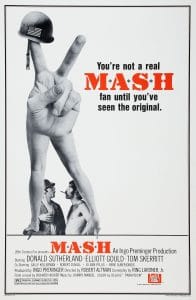
Also, the pilot episode had a version where the song arrives a couple of minutes in and was twice as long. After the departure of Trapper John, the arrival of Mike Farrel was edited into the opening credits. The shot of Hawkeye remained the same. The movie more closely followed the book, which had a much darker and more nihilistic type of comedy. This is probably most evident in Hawkeye and Trapper’s characters the most. This is important in understanding the choice to scrap the lyrics for the show.
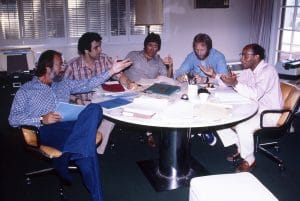
The television series was never going to use that version; it would have killed the show before it started so instead they just used the instrumental. So brilliantly put by an anonymous blogger, “The movie was a comedy about death. The television series was a comedy about living.”
The Creation of The Song

TM and Copyright (c) 20th Century Fox Film Corp. All rights reserved.
Courtesy: Everett Collection
The theme for M*A*S*H wasn’t even supposed to be the theme of the motion picture, let alone the show. It was written in 1970 for an important scene, “The Last Supper” and was originally made as a song played by one of the actors during a scene. The song was co-written by a 14-year-old and was meant to be “stupid.”
The song had to be written before the movie was shot. Director Robert Altman hired composer Johnny Mandel, who had recently won an Oscar for his song “The Shadow of Your Smile” from the movie The Sandpipers. Alman found himself in a pickle. He needed a song that had a solemn tone but was so bad that it was funny. This leads us to the teenager in question. The “M. Altman” who received credit on the record was none other than Mike Altman, the teenage son of Robert Altman.

The director first took a crack at writing the lyrics himself. However, he felt his output was not “stupid enough.” He wanted the song to be “the stupidest song ever written”. He told his composer, “I’ve got a kid who’s a total idiot.” So, he gave it to his son. When the movie went through an editorial process, Mandel heard the song being played over the film’s title in the helicopter scene and protested, saying, “It was the stupidest thing I have ever seen,” and angrily walked out insisting it didn’t fit. The studio ignored his protest and the song was not only heard all over the world, but it earned Mandel his highest copyright revenues. He later remarked, “I’m glad I lost that battle.”
The singers you hear for the opening credits version of the song also performed the theme songs to Batman, Wonder Woman, That Girl, Happy Days, Flipper, and more. They received no credit for the smash M*A*S*H single.
The Lyrics
“Through early morning fog I see,
All of the series episodes started with helicopters bringing the wounded in the “early morning fog”.
Visions of the things to be
The pains that are withheld for me
I realize and I can see
That suicide is painless
It brings on many changes
And I can take or leave it if I please
The alternative to being drafted and “sentenced” to possible death, is one’s choice– a “take it or leave it” self offer.
That game of life is hard to play
I’m gonna lose it anyway
The losing card I’ll someday lay
So this is all I have to say
Suicide is painless
It brings on many changes
And I can take or leave it if I please
(Can you believe this was written by a 14-year-old?)
The sword of time will pierce our skin
It doesn’t hurt when it begins
But as it works its way on in
The pain grows stronger, watch it grin–
(Again, the lyrics were meant to be ironic.)
Suicide is painless
It brings on many changes
And I can take or leave it if I please
This song does not support suicide. In the film, these lyrics were supposed to scare Painless Pole out of committing suicide during the scene, “The Last Supper.”
A brave man once requested me
To answer questions that are key
“Is it to be or not to be?”
And I replied, “Oh, why to ask me?”
Suicide is painless
It brings on many changes
And I can take or leave it if I…
Suicide is painless
It brings on many changes
And I can take or leave it if I please
Suicide is painless
It brings on many changes
And you can do the same thing if you please”
The song is sung by Ken Prymus, and the whole scene has uncomfortable humor about it. Additionally, each one of Painless Poles’ colleagues comes up to the casket to say an unnecessary goodbye. And that is the essence of the song. The men over-simplify suicide in an attempt to save their friend from his ‘light tragedy’ of a failed sexual encounter.
The Money
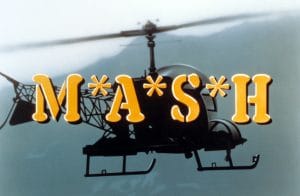
Robert Altman may have been looking for an “idiot,” but the joke was on the director. In an interview with Johnny Carson in the 1980s, Altman revealed he had been paid $70,000 to helm the film. His son raked in more than $1 million in songwriting royalties.
Critical Acclaim
In 1980, A decade after its initial release, “Suicide Is Painless” shot to the top of the charts in the United Kingdom, thanks to a newly recorded version credited to an act simply called, “MASH.” This is unusual, given that M*A*S*H is not a band, nor a single artist.
Different Versions
Most famously the song was covered by Manic Street Preachers. It peaked at #7 on the UK charts. Jazz legend Bill Evans imbued the tune with a slick, cocktail-lounge feel on his 1977 album “You Must Believe In Spring.” In some ways, he makes it sound more like Vince Guaraldi’s Peanuts music. Does any version beat that originated from the 1970 film?
If you haven’t seen the original movie, give it a watch. It is more aligned to the novel and is masterfully crafted in a lot of ways. It uses improv to set a very natural tone that the television show replicates to perfection with slightly more humor. Additionally, the movie was a comedy about death. The television series was a comedy about living.
